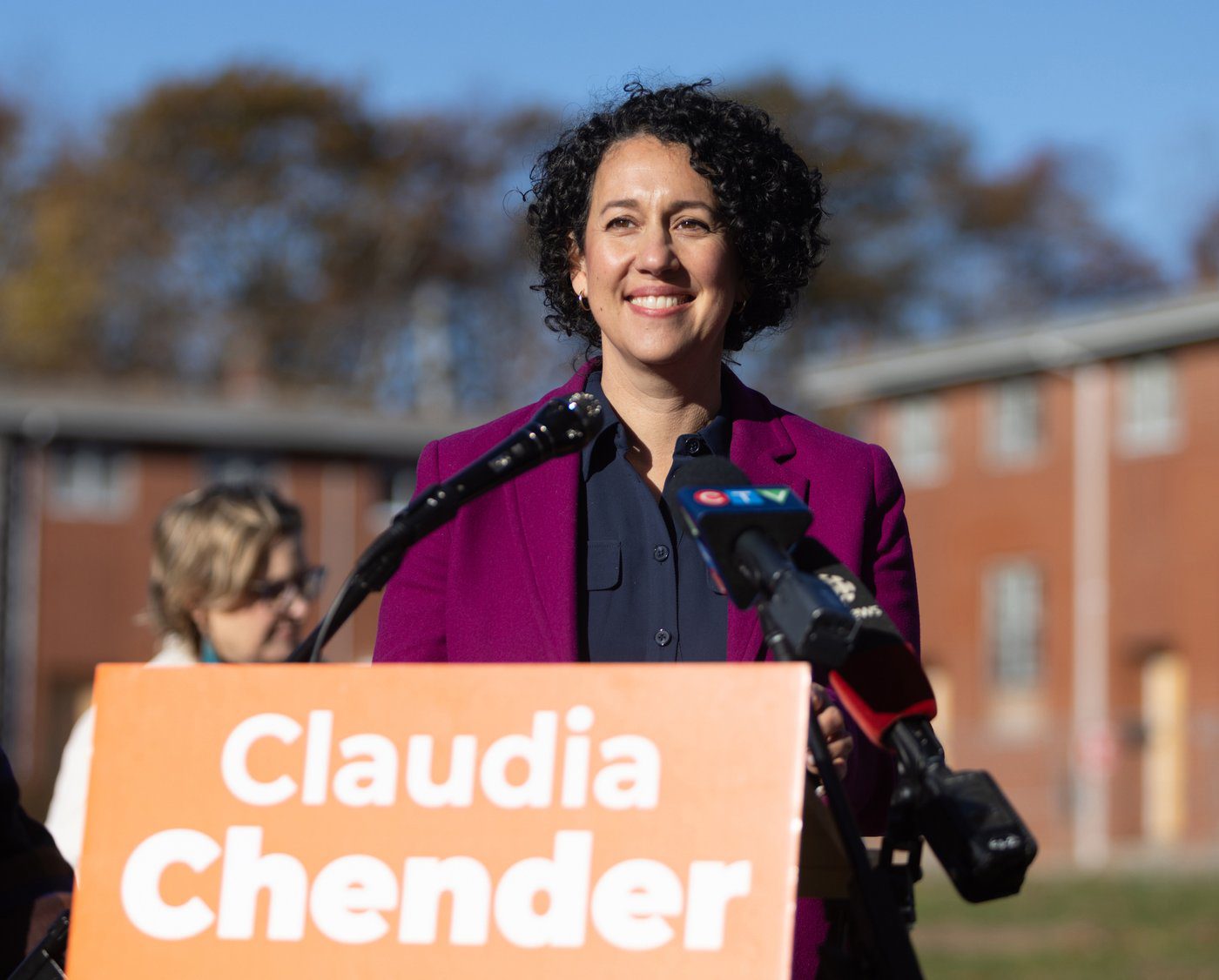HALIFAX — Nova Scotia NDP Leader Claudia Chender doesn’t make a habit of getting kicked out of the legislature — it’s happened once in her seven-year political career.
But last fall, when a Progressive Conservative minister said children across the province had access to free, healthy food in schools, Chender — knowing that statement wasn’t true — couldn’t help but blurt out, “that’s a lie.”
In response, the Speaker of the Nova Scotia House of Assembly demanded Chender retract her unparliamentary language, but she wouldn’t.
As a result, she was booted from the legislature.
“Theatrics really aren’t my thing, but at that moment it felt really important to me,” Chender said in a recent interview.
“I think you don’t have anything in politics if you don’t have your integrity.”
Chender, 48, a non-practising lawyer and mother of three, said she jumped into politics in 2017 because she got tired of yelling at the radio. She had strong opinions about the improvements needed in health care and in the education sector, which had recently gone through a one-day teachers strike in February 2017 — the first time teachers walked off the job in the province’s history.
Inspired by former NDP leader Alexa McDonough — who in 1980 became first woman to lead a major Nova Scotia political party — Chender put her name forward as a candidate for Dartmouth South. At the time, her twin daughters, Molly and Ana, were five years old and her son Sam was three.
“In my young life I saw people like Alexa McDonough who had been that powerful voice, who had brought the frustrations of everyday folks into the political arena in a really successful way,” she said.
Those frustrations were on display at the legislature on Oct. 13, 2023. Chender was listening to Education Minister Becky Druhan, who said kids in Nova Scotia already had access to free food. It would be a year before the province’s school lunch program began accepting food orders.
Chender’s exclamation — “that’s a lie” — came out of frustration, she said. “I really thought I was just saying that to myself.”
Despite apologizing multiple times for using unparliamentary language, Chender would not take back what she said.
“This is a job where you need to represent the people of the province and your constituents as well as you can. And the fact of the matter is, what I said was true,” Chender said.
“Kids didn’t have access to healthy food. Amazingly, they do now, which is fantastic and maybe not totally disconnected from that sequence of events.”
Born and raised in Halifax, Chender graduated with a bachelor of arts from Dalhousie University in 1999. She earned a law degree from the University of Victoria in 2004, and has worked as a legal educator with the Nova Scotia Barrister’s Society, as an associate publisher for a non-profit media company, and as a consultant in organizational design and development.
She and her husband Jamie moved to Dartmouth in 2012 to start a family.
Throughout the election campaign, Chender’s NDP has emphasized plans to address Nova Scotia’s housing crisis and high cost of living, with a platform that includes building 30,000 affordable rental homes, making Halifax ferries free, and temporarily removing the provincial portion of the harmonized sales tax on gasoline.
The party has also pledged to remove the HST from the cost of home heating and build 500 houses using prefabricated construction for a rent-to-own home program that would be available to people who make less than $100,000 a year.
The Nova Scotia NDP started the campaign with a full slate of 55 candidates, but lost one along the way, announcing earlier this month that Tammy Jakeman was no longer running in Eastern Passage, after the Centre for Israel and Jewish Affairs alleged she had made “hurtful” social media posts.
Elections Nova Scotia lists Jakeman as an Independent candidate for the same riding.
When asked about Jakeman’s comments and departure from the party, Chender said the former candidate offered her resignation “and we respected her decision,” adding that the resignation came without the party asking for it.
“It really starts and ends there. We are in a 30-day election campaign and we must remain focused on the conversations we’re having with voters.”
Those conversations, Chender said, are most often focused on affordability, health and housing, and she feels the party’s message is resonating.
“People want to see a government that actually protects renters and builds housing they can afford. People want to see the primary care wait-list shrink … and people need a break on their bills,” she said.
Polling numbers from Abacus Data released Nov. 13 had the Progressive Conservatives in the lead with support of 47 per cent of respondents, and a tight race for second between the Liberals with 25 per cent and the NDP with 23 per cent. The poll surveyed 600 voters between Nov. 7 and 10.
Chender said she doesn’t put much stock in polls, and feels strong going into next week’s vote alongside the NDP’s “hard-working candidates from one end of the province to the other, who are talking about the things that really matter, who are the ones people trust to actually address the housing crisis.”
This report by The Canadian Press was first published Nov. 20, 2024.
Lyndsay Armstrong, The Canadian Press





